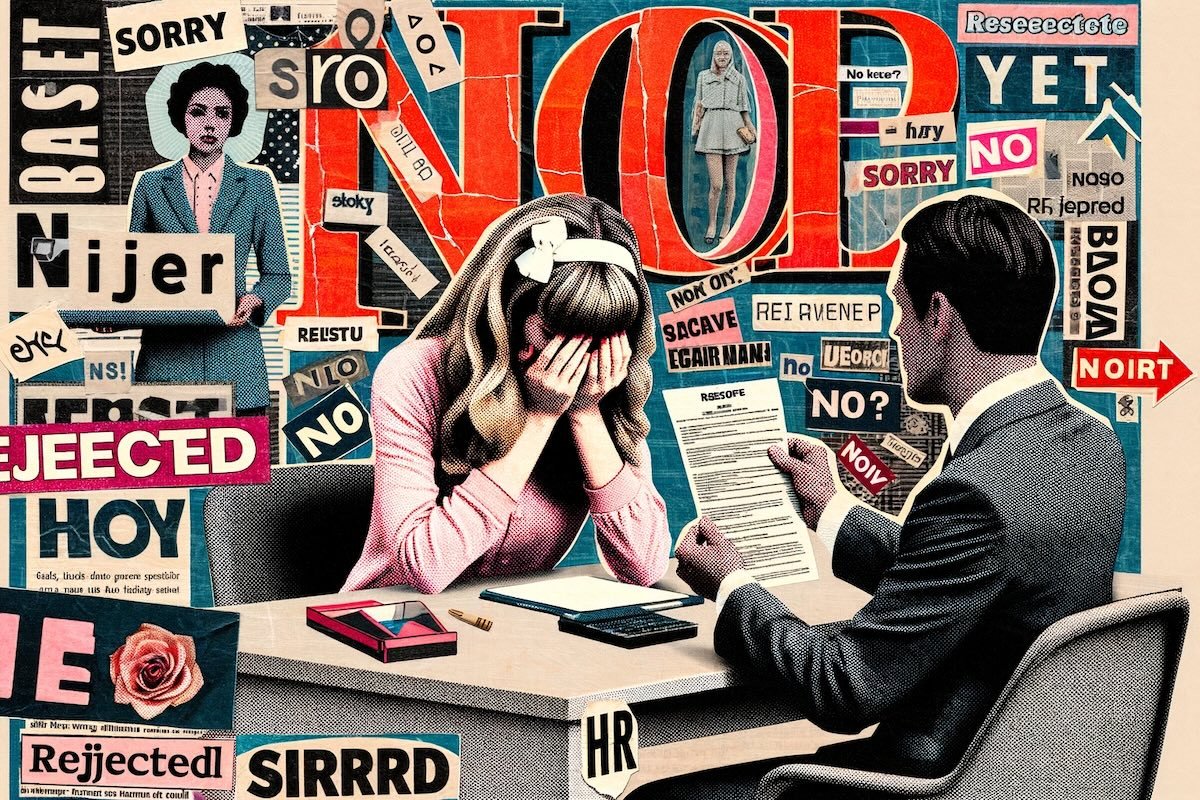What steps can you take to ace an interview?
Whether you are in the midst of interviewing or just starting to dust off your resume, we’ll be diving into my favorite interviewing tips to keep in mind before, during, and after your next job interview.
Welcome to Ask a Coach. I’m Marnie, a
Career Contessa Coach. In this advice column, I’ll answer the most common questions we get in career coaching sessions here at Career Contessa.
Topics range from job search tactics and negotiations to career development and fulfillment. Have a burning question you want to see answered? Send it my way! Looking to have a coaching session of your own? Check out our
rockstar list of coaches.
The main interview concerns I hear from my coaching clients are they won’t be prepared enough or they won’t have the “right” answer to a given interview question. My answer is always the same: there is no “right” answer and you very well may never feel 100% prepared.
The Goals of an Interview
Before we dive into the tips, let's quickly go over the goals of any interview—both for the interviewer and the candidate.
- Goal#1: Show your personality
- Goal #2: Demonstrate your problem-solving abilities.
- Goal #3: Express why you're a great fit role.
These three elements can shine through in a natural, organic way based on how you frame your interview answers and how you interact with the interviewer.
My favorite interviews as a hiring manager always felt like organic dialogue, rather than a monologue of successes from the interviewee. Keeping this goal of a natural flow in mind, I’m going to dive into four tangible tips you can use to feel more at ease and really stand out in your next job interview.
Show Why You’re an Ideal Candidate for the Role
Let's start with how to make a
good first impression at the beginning of an interview. For most interviews, two types of questions are nearly guaranteed towards the earlier end of the conversation - why do you want this role and why do you want to work at this company?
If you can master these two questions, along with your professional stories (more on that later), you can go into your interviews with a sense of confidence while avoiding burning yourself out in the preparation process.
Why This Role?
This is your opportunity to get specific and show your real interest in the role. A common mistake I hear candidates make is over-indexing on why they are excited for the company—especially if it’s a flashy brand. When making this mistake, candidates fail to share a solid reason as to why the role and the general team are appealing. Nailing this answer will show the hiring manager that you are excited to join their specific team and that you see a long-term future on the team rather than trying to simply get your foot in the door at the company.
Here are a few key beats you’ll want to hit on:
How responsibilities align with previous positions you've held
- If you are transitioning industries, you can still find transferable skills between the responsibilities of the new role and responsibilities from a previous role.
How the responsibilities and opportunities of this role align with your future career goals
- If there’s a path to take on more high-level work down the line or move into people management, tie those back to your own professional goals.
- The more you can show excitement about the team in the long-term the more you will be viewed as a strong hiring decision.
What you’ve learned about the role or team in your research
- This can look like calling out a big campaign the team worked on that you found on the company website.
- You can also pull through learnings from earlier interview rounds into your answers.
Why This Company?
Just as specificity helps you shine when explaining why you’re excited for a role, you want to find opportunities to be specific when sharing your excitement for the larger company. You want to avoid any vague, general reasons as a standalone answer to this question and make sure you really convey why this company interests you over another company.
If you don’t have a deep reason right off the bat, that’s totally okay, you don’t have to be obsessed with your potential company to have a solid answer to this question.
Here’s how you can piece together an answer:
1. Illustrate your passion, and how you hope to incorporate it into your future
Speak to your passion for the larger industry and why you are excited to move into that industry or continue working in it.
2. Explain how the company hits on certain aspects of your ideal work environment
Important Disclaimer: A role being remote is not a compelling enough reason on its own. While you may include this in your answer, don't make it the center.
- A smaller company allows you to wear more hats and learn new skills quickly.
- A company with remote-friendly policies, like “No Meeting Fridays”, allows you to work autonomously which can lead to more effective deep work.
- A company that has a history of promoting leaders from within makes you excited for your future goals of people management.
3. Tie back your experiences or passions to the company’s mission
- Close the "circle" by tying your experience and passion to what the company offers.
Practice Your Professional Stories
This part of the process is definitely the most time-intensive. The good news is that your professional stories will be relevant for all your future interviews. In some cases, a recruiter may give you the heads up on the types of skills they want to learn about you or the types of questions that will be asked. However, for the purposes of this deep dive, let’s assume you don’t have a sense of what’s going to be covered.
Regardless of the interview, the ultimate goals are the same details I shared at the top of the column:
- Understanding your personality
- Learning how you problem-solve or think
- Determining if your unique qualifications for the role are the best fit. Many interviewers use situational questions to get a true sense of how you operate, which are the well-known questions that start with “tell me about a time when….”
My favorite way to prepare for these questions is to focus less on the question itself and more on the categories of your answers. The question from the interviewer could be worded many different ways, but here are the most common categories of questions I’ve seen working with clients:
- Dealing with conflict or a time something went wrong
- A process you led or had a hand in improving
- A key win or substantial impact you had in a previous role
- A time you had to handle competing priorities
Once you identify the categories of your stories (using Google to find common interview questions can help you identify popular themes), you then want to think through examples. You don’t need to memorize your answers word for word, but I do recommend having specific stories selected for each category, which will make you feel more confident heading into the interview.
Last but not least, explaining these anecdotes will matter as much as the examples themselves. You want to ensure that your strongest employee characteristics shine through each of your answers.
Below is my personal method for framing interview answers to ensure that you are giving enough context to the interviewer while keeping your answer relatively concise and hitting on your unique characteristics or learnings.
- Set the stage
- What was the problem
- How did you come up with the solution
- What was the impact / What did you learn
Research Your Interviewers Ahead of Time
Just like your interviewers are going to review your application before they meet with you, you should be doing your research on people you’ll be speaking with in an interview. From a time commitment perspective, this should be a very small portion of your prep (10 minutes max per person) and the goal is to show you were willing to go the extra mile in your preparation. Here’s a quick step-by-step on my personal process:
- Go to the person’s LinkedIn profile (or utilize the company website if relevant) and read about their time at the company. Easy nuggets to pull out are: how long they’ve been on the team, the roles they’ve had during their time on the team and what they did before joining the company.
- Take one of the nuggets you found and turn that into a question you can ask at the end of your interview. (Ex: “I saw you’ve been on the team for 5 years, can speak to what keeps you excited about your role?")
- Naturally, bring up any other nuggets as the conversation allows, but don’t feel the need to pepper in multiple references to your research.
Beyond showing you did your research, this tactic is also extremely effective at building rapport with your interviewer because it shows you value their perspective and want to ask them questions they are uniquely positioned to answer.
Send a Timely and Custom “Thank You” Note
Probably not a hard one to predict: the age-old importance of thank you notes. I can speak from personal experience when I say these are a dying art and will only help you continue to stand out after an interview.
My Favorite Tip: Send your thank you the same day as your interview. The timing is crucial because you never know where your interview falls in the hiring process, and ultimately, your “thank you” note shouldn’t take longer than a few minutes to write.
Much like most things these days, there’s no need to make it too lengthy. You can have a thoughtful, custom thank you note and still keep it concise. Beyond sharing your appreciation for their time, and re-emphasizing your ongoing interest in the role, try to include one custom callback to your conversation in the email.
Maybe it’s a project the interviewer mentioned that you really enjoyed learning more about or maybe it’s something more casual, like meeting someone’s dog in the interview. Any small reminder you can include that sets you apart from the group of candidates will help keep you top of mind.
Until Next Time!
Sending you all great vibes for your next interview. If you use any of these tips, or want to learn more about a specific one,
please reach out and let me know.
Remember that while it’s natural to feel nerves before an interview, it’s really just a space for you to show your enthusiasm about the opportunity and to share the expertise you could bring to the team. If you’re looking for more custom support preparing for your next interview, you can work with me or one of my fellow coaches
here.












